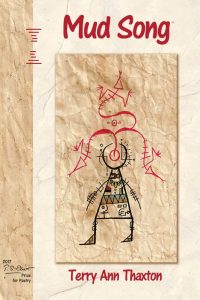
Terry Ann Thaxton, a professor in the Department of English, won Truman State University Press’ 2017 T.S. Eliot Prize for Poetry for her third book of poems, Mud Song.
Each year, TSUP receives about 500 manuscripts that are screened and judged by a nationally known poet. Kevin Prufer, author of Churches, In a Beautiful Country, and National Anthem, served as this year’s judge, and selected Thaxton’s book as the winning collection of poetry to be published by TSUP on Sept. 1, 2017.
“In ‘Mud Song,’ the swamps, back roads and small towns of Florida transcend setting and become something akin to personality,” Prufer said. “These are wild, harrowing, brightly colored poems, bristling with violence and trauma. The poet’s language surprises and delights. Her wit is deft and sharp. The engines that power these vivid poems are memory, desire, fear and, at times, a kind of holy rage.”
In her book, Thaxton’s search for herself is guided by a landscape of pine forests, palmettos, gopher tortoises and armadillos. However, as a fifth-generation Floridian, she knows that the natural world is never more than a stone’s throw away from its destruction.
Thaxton spent years sending her Florida-inspired poems to multiple publishers before it finally paid off. Now, her achievement has become a symbol of determination, which she uses as a motivator for students who share her passion.
“It took away a few of the doubts I get, and I think most writers – most artists – get all the time,” she said. “This achievement meant, ‘Yes, I should keep writing,’ and that’s what all art students should do, keep creating art.”
Here’s what poet David Rivard said about the book: “Like Heaney in North, Terry Thaxton digs deep to unearth a past both personal and cultural—here, the past of all those long-buried Floridas that survive under the one we think we know best, the Florida of the last ten minutes. Thaxton’s willingness to make herself vulnerable moves me, her insistent openness teaching the earth itself a thing or two. In return, the earth provides these elegiac poems their wonder, a worshipful amazement that even the oranges seem to shine with in the end.”